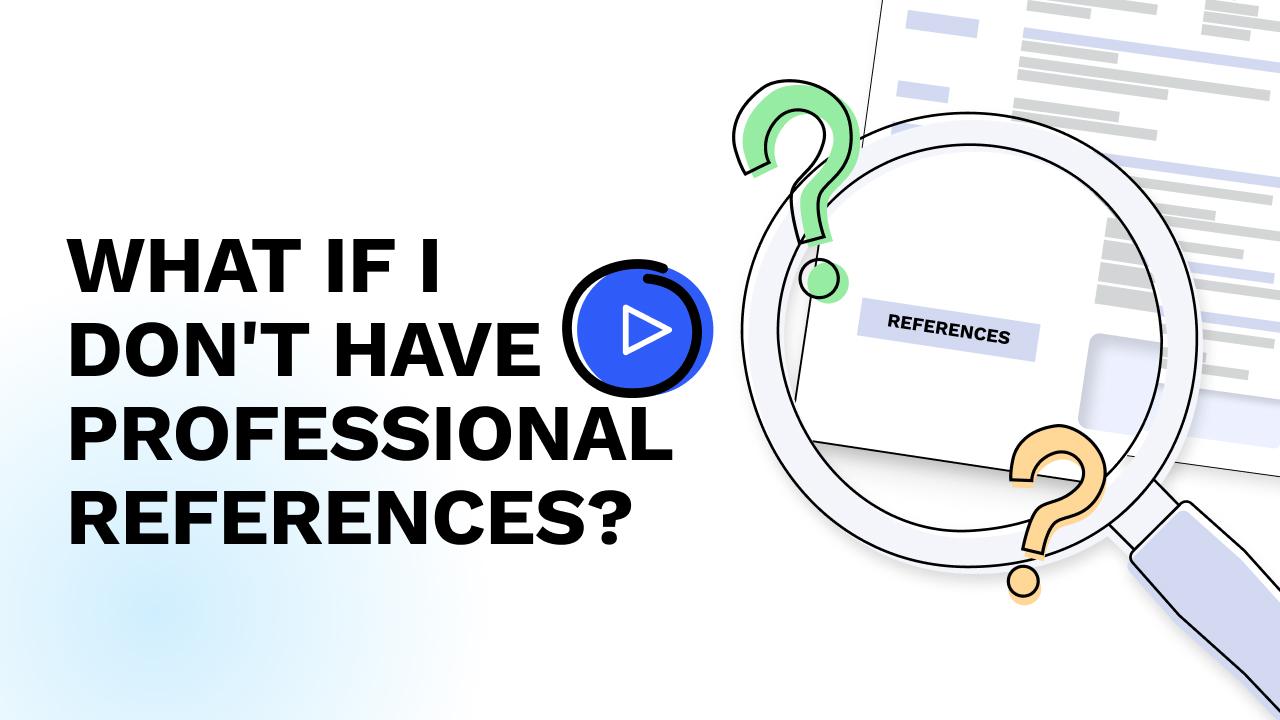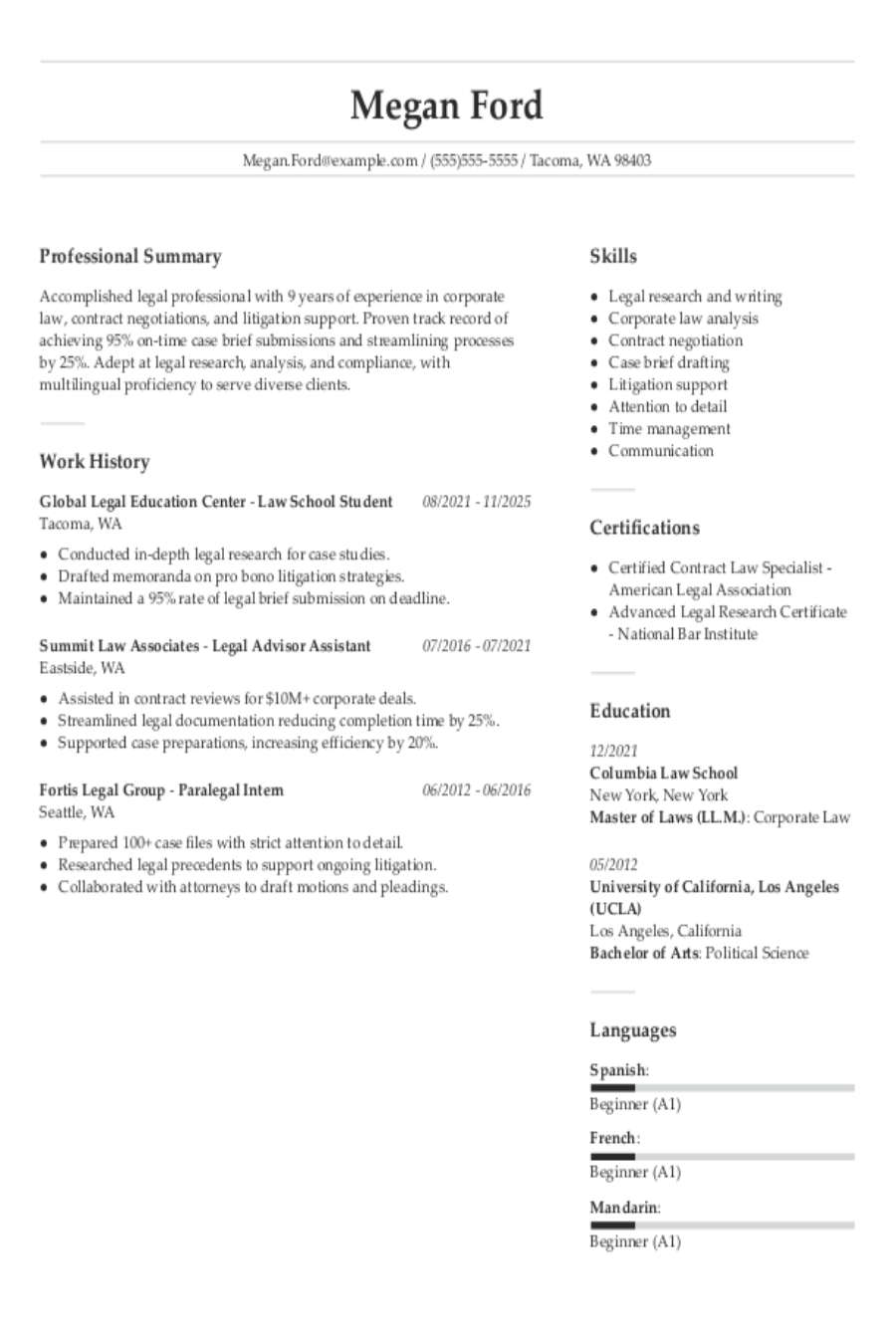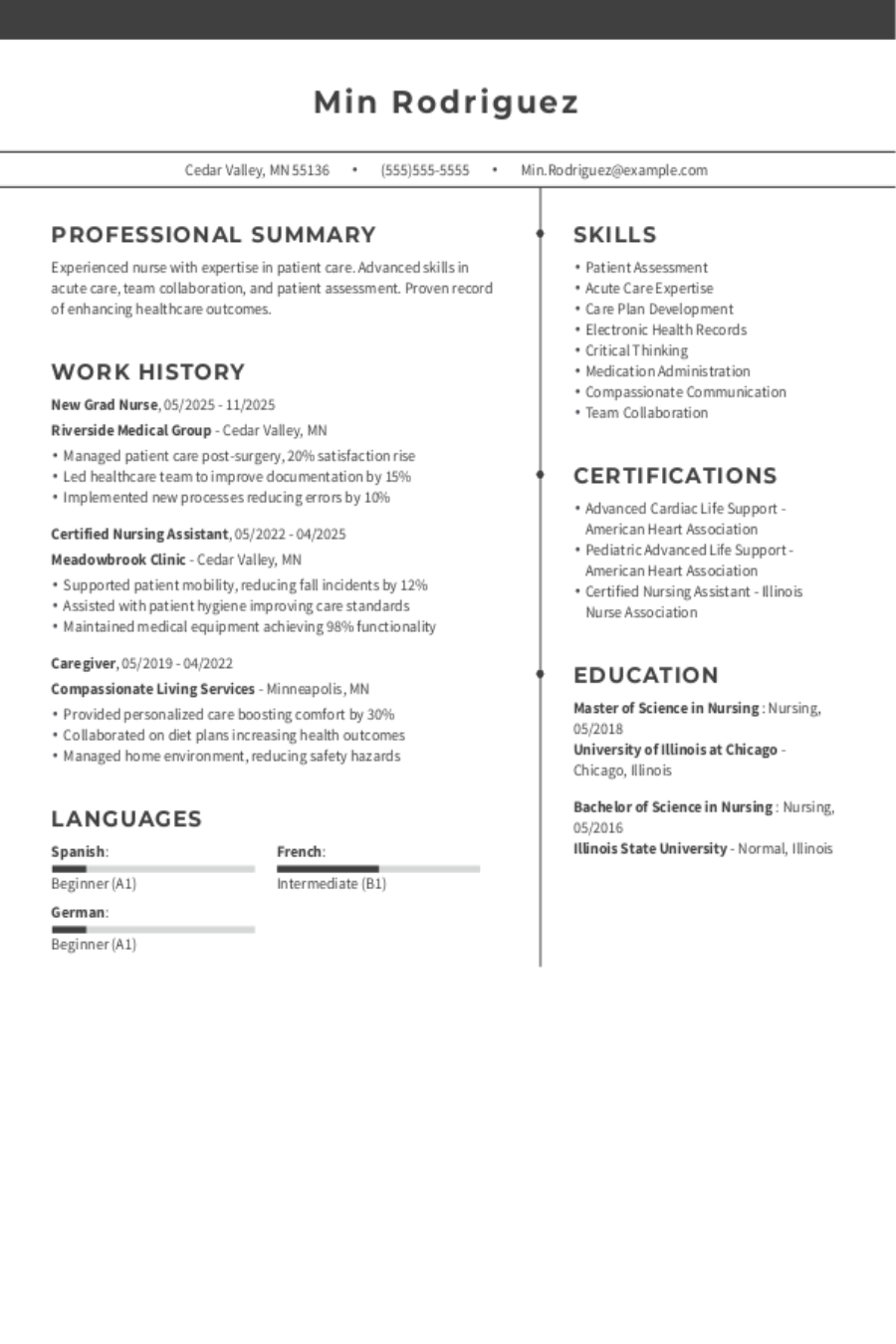Table of contents
From searching for a job to acing the interview, the job search requires a lot of resources from you. After writing a great resume, creating a cover letter that captures attention, and answering the interviewer's questions, you still have one important detail to work on: your references.
But what do you do if you don't have professional references? Our guide will help answer these questions and more.
We'll discuss:
- What references are and why employers expect them
- How to present your references to the employer
- How to handle references as a beginner candidate with no experience
- How to ask for a reference
Need a resume to get to the references stage of the hiring process? Try Resume Now's AI Resume Builder for a fast, easy, and user-friendly resume-writing experience. This tool uses AI assistance, stylish templates, and formatting expertise to help you create an impressive resume in minutes.

What Are References and Why Do Employers Want Them?
Your professional references can include colleagues, former employers, and any other acquaintances from your career or professional extracurriculars who can provide insight into your work experience and skills.
Once an employer is ready to extend an offer, they'll typically ask you to fill out a form providing your references. These are important because they:
- Validate your abilities: Contacting a reference gives employers the opportunity to verify that your professional skills are what you say they are. Employers want to hear what your colleagues have to say about your abilities.
- Verify your background: When you're writing a resume, it can be tempting to embellish your achievements to make a strong impression. Emphasizing your best traits is wise, but employers do take measures to verify the truthfulness of your resume. That's one of the primary reasons why employers request references: so they can confirm that your experience is accurate.
- Provide insights: Beyond proving your experience and verifying your strongest technical skills, references can also provide insight into your working style and career values. As much as you want the role to be a good fit, employers are hoping that the candidate they choose will last in the role for a long time. Learning about your working style and priorities can help them make informed decisions.
When and How to Present Your References
With how important references are, you might think that you need to display them on your resume, but this isn't usually the right approach. A list of references is part of the onboarding process and generally should not be included with your resume.
You may have seen the phrase "references available upon request" on some resumes, but this approach is not appropriate either. Employers expect your references to be "available upon request" as a minimum requirement, so including this phrase on your resume doesn't accomplish much.
But how should you present your references? When it comes to your resume: don't! You should create a list of references that you're prepared to offer the employer during the onboarding process.
When the time comes, the employer may give you a document to fill out, but if not, you should follow this basic template:
[Name of reference #1]
[Job title]
[Company]
[Phone number]
[Email address]
[Reference description]
[Name of reference #2]
[Job title]
[Company]
[Phone number]
[Email address]
[Reference description]
[Name of reference #3]
[Job title]
[Company]
[Phone number]
[Email address]
[Reference description]
While you shouldn't provide your references to the employer until they request them, it's a good idea to prepare your list in advance. This will help you ensure that you're ready to contact your references when the time comes. Most employers will request three to five references, so be prepared to provide at least that many.
Who to Use as a Reference If You Have No Experience
If you're writing a resume for your first job, you probably don't have many former employers to use as a reference. That's OK! Every career story starts with a first role. But how do you share your references with an employer if you don't have any references? There are more options than you might think. Try reaching out to:
- Former teachers or coaches: Providing references is a regular part of an educator's job. Ask a professor, teacher, sports coach, or academic mentor to act as a reference if you lack experience. A teacher should have appropriate insight into your work ethic, subject matter expertise, and working style. Any teacher or coach who has insight into your skills will do, but it's especially helpful to focus on subjects that are relevant to the role you're applying to, as well as teachers who have seen you excel.
- Colleagues, coworkers, or mentors: Have you worked a part-time job in the past? Participated in an extracurricular program? Performed volunteer work? A colleague, coworker, or supervisor from any of these programs is an appropriate choice for a reference.
- Classmates or friends: A friend can act as a professional reference if you don't have any other options, but proceed with caution. Employers expect your references to be prepared to provide insights into your career background. You shouldn't list any references that aren't prepared or able to do so.
A friend can act as a reference in a pinch, but you shouldn't ever use a family member. This is important because references are often part of a background check process. If the employer sees that your reference is a family member, it can undermine your credibility and make employers suspect that you've been dishonest about your experience or skills.
How to Ask Someone to Act as a Reference
Now that you have a list of potential references to send to the employer, how do you ask them to participate? It's important that you:
- Reach out to each reference personally: It's poor etiquette to use someone as a reference without first asking their permission. Plus, a reference who isn't prepared may not answer the employer's call or provide a strong recommendation. Send your potential references an email or make a phone call to ask them politely to act as your reference.
- Provide each reference with details about the role: Tell your references what you need them to emphasize for the role. Coaching your references might feel like cheating, but it's actually standard practice and will help them feel prepared to answer the employer's questions and provide a truly helpful recommendation.
- Thank your references for their assistance: Whether they're your former teacher, your employer, or a volunteer coworker, your reference is doing you a favor by acting as one. Send them a thank-you note and acknowledge their effort on your behalf.
Here's a sample template for an email asking for a reference:
Subject: Request for a Professional Reference
Dear [Reference's Name],
I hope this message finds you well. I am reaching out because I am currently applying for a position as [Job Title] at [Company Name], and I would be truly grateful if you would be willing to serve as a professional reference for me.
During our time working together at [Organization/School/Project], I greatly valued your guidance and the opportunity to develop my skills in [specific area]. I believe you could speak to my strengths in [list one or two relevant skills or qualities], which would provide valuable insight to potential employers.
If you are comfortable, the employer may contact you directly via email or phone in the coming weeks. Please let me know if you would like any additional details about the position, my updated resume, or anything else to make the process easier for you.
Thank you very much for considering my request. I deeply appreciate your time and support.
Warm regards,
[Your Full Name]
[Your Contact Information]
Asking for a reference might feel awkward, but people in mentorship roles expect to be asked. Your former manager, college professor, or sports coach has probably written a reference for someone in your position before, and doing so may even be a regular routine for them. As long as you ask politely, you don't need to be embarrassed.
Final Thoughts
Creating a list of references can seem like an uphill battle when you don't have any experience, but you have more options than you may realize.
Think of people from your academic, professional, or extracurricular background who can vouch for your work ethic and skills. Then, ask them if they're willing to act as your reference. You'd be surprised how many people will agree!
Key Takeaways
References are critical to validate your experience.
Employers ask for references because former employers, colleagues, and academic advisors can provide insight into your working style, background, values, and skills. References are also important for employer background checks, which help verify that you are who you claim to be.
Don't list references on your resume.
It can be tempting to send a potential employer lots of detailed information, but you don't need to provide your references until you're asked. Don't list "references available upon request" on your resume either. Employers will ask for your references during the onboarding process, and you don't need to offer them until asked.
References can be academic or extracurricular.
If you don't have work experience, it's OK to use references from other areas of your life. Be sure to use a reference who has insight into your abilities. As long as they're not a family member, anyone who can verify your skills can act as a reference.
Notify your references before submitting their information.
You don't want to catch a potential reference off guard. Be sure to ask permission before listing them as a reference. Give them the tools to provide a positive recommendation by describing the role, and be sure to thank them for vouching for you.
More Resources to Help With Your Job Search
- 20 Surprising High-Paying Jobs You Can Do From Home
- How to Use AI for Your Job Search in 2025
- How to List References for a Resume With No Experience
- 18 Resume Tips to Help You Write the Best Resume
- How to Quit a Job You Just Started
Was this information about No References For Job helpful? Let us know!
Hailey is a career advice writer dedicated to helping job seekers excel in their careers.
More resources

What Is a CV? Curriculum Vitae Definition & Who Should Have One
Do you need to know what a CV stands for? We share the definit...

Hard Skills: 70+ Examples to Put on Your Resume
Hard skills are more important than ever in competitive indust...

AI Trends Heading Into 2026: Resume Now’s Year in Review
In 2025 artificial intelligence moved from buzzword to workpl...

Mechanical Engineering Resume: Examples & Templates
Was this information about No References For Job helpful? Let ...

Law School Resume: Examples, Templates and Tips
Check out our resume examples for help getting your law school...

New Grad Nurse Resume: Examples & Templates for 2025
Was this information about No References For Job helpful? Let ...
